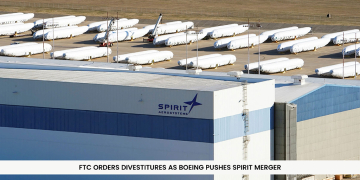In a time characterized by swift technological advancements, worldwide unpredictability, and shifting workforce expectations, organizational transformation is not merely a choice; it is a necessity. Human Resources (HR) holds a distinctive role in facilitating this change, serving as a link between the vision of leadership and the actions of employees. Below are five crucial methods through which HR can spearhead effective organizational transformation in 2025:
Championing Change Management
One of the most essential functions of Human Resources in the context of transformation is to lead change management initiatives. HR professionals play a pivotal role in establishing organized strategies for altering mindsets, processes, and behaviors. By articulating the vision, addressing employee concerns, and designing training programs, HR facilitates the acceptance of change rather than its opposition. Furthermore, they provide leaders and managers with the necessary tools to act as effective change agents within their respective teams.
Aligning Talent Strategy with Business Goals
For any transformation to be successful, it is essential that the appropriate individuals occupy the correct positions. Human Resources can take the initiative by aligning strategies for talent acquisition, development, and retention with the changing requirements of the organization. This involves performing skills gap analyses, encouraging internal mobility, and investing in upskilling programs. By guaranteeing that human capital aligns with the business strategy, HR serves as a driving force for advancement.
Fostering a Culture of Innovation
Organizational transformation necessitates more than mere structural modifications; it requires a fundamental change in mindset. Human Resources is instrumental in fostering a culture that prioritizes innovation, experimentation, and ongoing improvement. This process entails redefining performance indicators, incentivizing creative thought, and establishing secure environments for collaboration and risk-taking. When employees are empowered to share their ideas, transformation evolves into a collective endeavor.
Leveraging People Analytics for Insightful Decisions
Data-driven decision-making is central to successful transformation. Human Resources can take the lead by employing people analytics to monitor workforce trends, anticipate challenges, and assess the effects of change initiatives. Metrics concerning engagement, performance, and turnover enable leaders to make well-informed decisions and adjust strategies promptly.
Driving Employee Engagement and Wellbeing
Change can be disconcerting for staff members. The Human Resources department guarantees that throughout times of transition, the experience of employees is prioritized.
By fostering open communication, practicing active listening, and implementing wellness programs, HR bolsters morale and cultivates trust. Employees who are engaged and resilient are more inclined to respond positively to change.
In 2025, Human Resources has evolved from a support function to a strategic catalyst for transformation. By aligning personnel, culture, and purpose with the objectives of the organization, HR plays a pivotal role in creating agile, future-ready enterprises.






